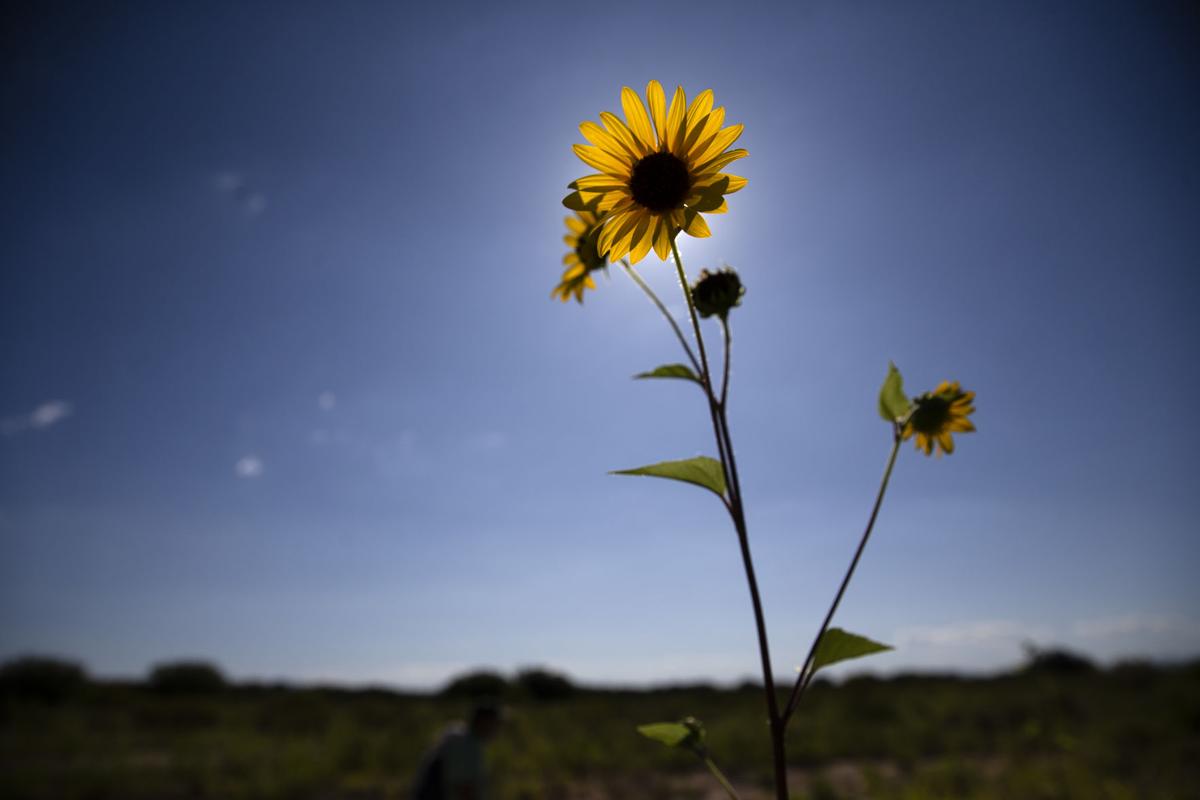Monsoon season brings with it a second chance for gardeners.
It's our second spring, if you will.
"Monsoon season is a time when the humidity goes up, temperatures drop a little bit, and we get that free water from the sky," says Jo Falls, the director of education and visitor services at Tohono Chul. "Living here in the desert, it's a traditional time to plant."
With more time at home than ever, we're excited about another opportunity to plant some seeds, watch them sprout and possibly harvest food from our own backyards.
Falls says it's best to wait to plant until after the first or second rain of monsoon season. That ensures that the ground is moist and easier to work with than the rock-hard situation you'll find outside now.
"Those rains will also cool the ground off and start the process of storing moisture, which is what the plants want," she says.
You can also use monsoon season to think about rainwater harvesting and look at how water runs off your roof and through your yard.
Also: A friendly reminder that if you're planting in containers, make sure those pots are secure so that they don't get toppled by the mighty winds that often accompany our summer thunderstorms. Check this story out for more monsoon gardening tips.
Growing fruits and vegetables
When it comes to monsoon planting, Native Seeds/Search recommends remembering your ABCs — that is, amaranth, beans, corn and squash. These are crops with varieties that have been planted in our region for generations. And this means they do well here.
Native Seeds/Search has a really helpful guide that will give you more information about planting these crops from seed during monsoon season and what you can expect from each.
Falls says monsoon season is also a great time to plant tomatoes. If you already have tomatoes that stopped producing during the June heat, monsoon season can give them a second chance at fertilization. Falls suggests planting from starter plants.
She suggests planting the Ciudad Victoria variety of tomatoes for the plant's hardiness. This sprawling plant produces tiny, sweet tomatoes
Now is also a time to plant melons, cucumbers, eggplants, tomatillos and more. If you want pumpkins for Halloween, plant them now. Visit tohonochul.org/monsoons for more information about monsoon planting.
Planting wildflowers
We're guessing we could all use more flowers in our lives these days. Luckily, monsoon season is a great time to plant sunflowers and some kinds of wildflowers from seed.
Flowers likely to bloom with the summer rains include Arizona poppies, firewheel, devil's claw, Mexican hat, native zinnias and more. Spadefoot Nursery has a guide to planting wildflowers, both cool-season and warm-season varieties. There are so many flowers that will bloom!
A few tips: You'll want to plant a diverse blend of flowers, rather just one variety. It makes for a better view. Also, you'll need to water every day to every other day until the seeds germinated, according to the Spadefoot Nursery guide.
Where to go for more information
If you're on the backyard gardening journey (and it is a journey), you want to make sure you're learning from Tucson-specific resources.
We already mentioned Native Seeds/Search as a place to get not just information but also tons of seeds. The physical store is closed, but you can still shop online. From July 4-12, the store is going on an annual summer break, so orders placed during that time will be processed after the break. Visit nativeseeds.org for more information.
Pima County Master Gardeners is another great resource that puts out monthly reminders about what you should be doing in your garden. July's reminder includes tips about planting, watering, maintenance and more. You can also submit specific questions you have about your own garden to the virtual plant clinic. The Pima County Master Gardeners also have a Tucson Garden Handbook that you can purchase from several local businesses (It's also a title featured on #ThisIsTucson's 2020 Summer Reading Challenge!). We would suggest calling the store closet to you to make sure it's in stock. Visit extension.arizona.edu/pima-master-gardeners for more information.
Tucson Backyard Gardening is a Facebook group with more than 38,000 members. Members share advice, questions and gardening victories. Join the Tucson Backyard Gardening group on Facebook for more information.
The Tucson Botanical Gardens also has tips for planting in the Southwest organized by month and a list of additional resources that are specific to the kinds of plants you're growing. Think succulents vs. roses. Visit tucsonbotanical.org/community-resources for more information.
We mentioned this already, but Tohono Chul has created a resource with tons of information about monsoons, from safety tips to kids activities. Plus a whole section dedicated to monsoon gardening. Visit tohonochul.org/monsoons for more information.
Rain, rain come our way.





